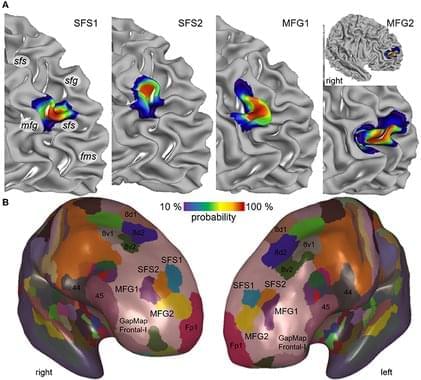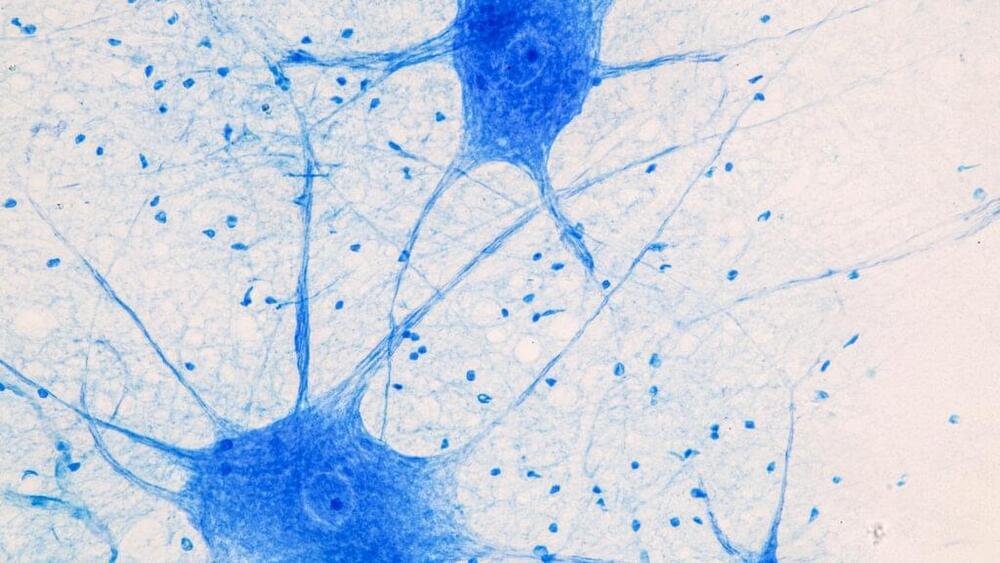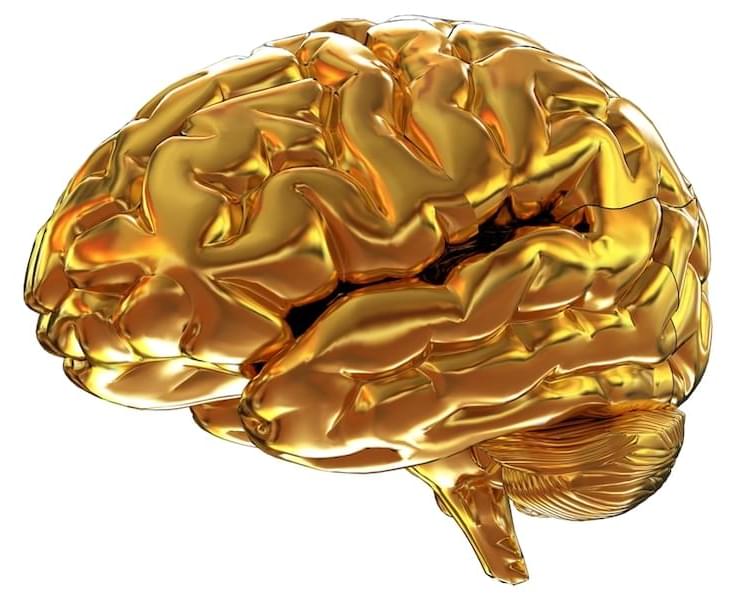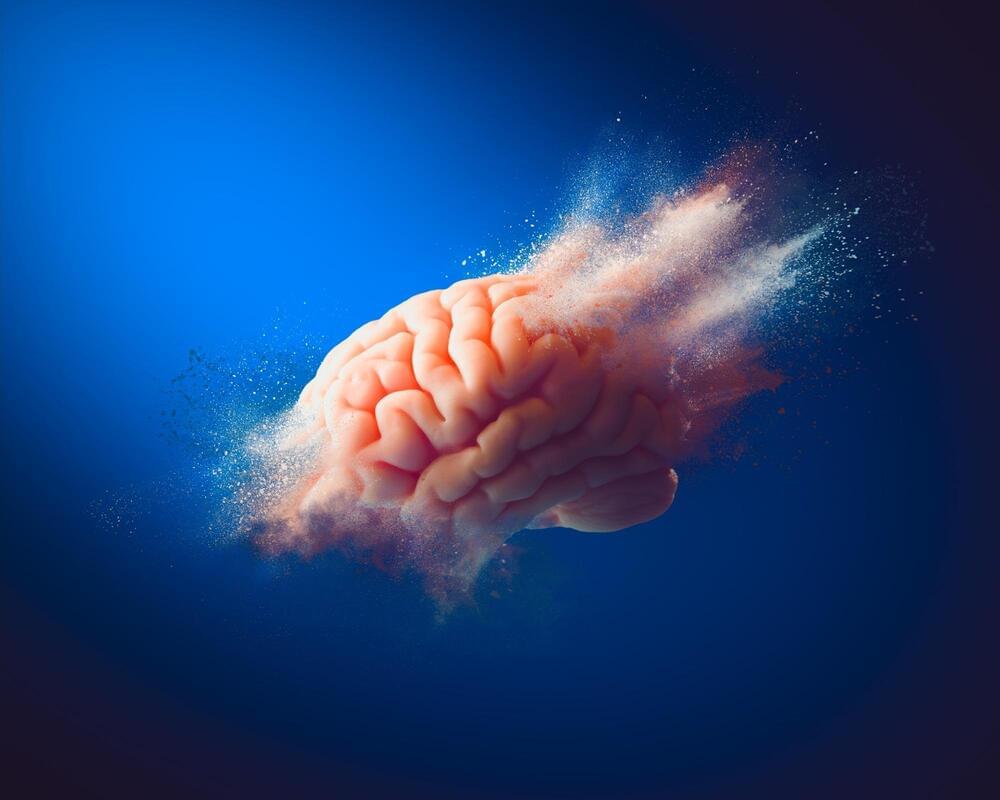It’s a wild idea, but recent experiments suggest plants may have the ability to learn and make decisions. Are the claims true and if so, what does it mean for our understanding of consciousness and the human mind?



A new study by theoretical physicists has made progress toward identifying how particles and cells give rise to large-scale dynamics that we experience as the passage of time.
A central feature of how we experience the world is the flow of time from the past to the future. But it is a mystery precisely how this phenomenon, known as the arrow of time, arises from the microscopic interactions among particles and cells. Researchers at the CUNY Graduate Center Initiative for the Theoretical Sciences (ITS) are helping to unravel this enigma with the publication of a new paper in the journal Physical Review Letters. The findings could have important implications in a wide range of disciplines, including physics, neuroscience, and biology.
Fundamentally, the arrow of time emerges from the second law of thermodynamics. This is the principle that microscopic arrangements of physical systems tend to increase in randomness, moving from order to disorder. The more disordered a system becomes, the more difficult it is for it to find its way back to an ordered state, and the stronger the arrow of time. In short, the universe’s propensity toward disorder is the fundamental reason why we experience time flowing in one direction.

The human dorsolateral prefrontal cortex is involved in cognitive control including attention selection, working memory, decision making and planning of actions. Changes in this brain region are suspected to play a role in schizophrenia, obsessive-compulsive disorder, depression and bipolar disorder, making it an important research target. Researchers from Forschungszentrum Jülich and Heinrich-Heine University Düsseldorf now provide detailed, three-dimensional maps of four new areas of the brain region.
In order to identify the borders between brain areas, the researchers statistically analysed the distribution of cells (the cytoarchitecture) in 10 post mortem human brains. After reconstructing the mapped areas in 3D, the researchers superimposed the maps of the 10 different brains and generated probability maps that reflect how much the localization and size of each area varies among individuals.
High inter-subject variability has been a major challenge for prior attempts to map this brain region leading to considerable discrepancies in pre-existing maps and inconclusive information making it very difficult to understand the specific involvement of individual brain areas in the different cognitive functions. The new probabilistic maps account for the variability between individuals and can be directly superimposed with datasets from functional studies in order to directly correlate structure and function of the areas.


Diseases such as Alzheimer’s and epilepsy will be easier to detect.
A 3D microchip made by a Swiss company will allow scientists to study the complexity of 3D cellular networks. This 3D chip will help to observe complex structures such as the human brain, according to a report published by Labiotech.eu.
Understanding how organs form and how their cells behave is essential to finding the causes and treatment for developmental disorders, as well as understanding certain diseases, said 3Brain.
A microchip that allows scientists to study the complexity of 3D cellular networks at unrivaled scale and precision has been added to 3Brain AG’s brain-on-chip portfolio.
In collaboration with Swiss precision manufacturing experts, CSEM, 3Brain AG made the announcement today (August 22).
The cell-electronic interface technology will also allow scientists to gain novel mechanistic insights into the inner workings of the most complex structure in the universe, the human brain.
TABLE OF CONTENTS —————
0:00–15:11 : Introduction.
15:11–36:12 CHAPTER 1: POSTHUMANISM
a. Neurotechnology b. Neurophilosophy c. Teilhard de Chardin and the Noosphere.
TWITTER https://twitter.com/Transhumanian.
PATREON https://www.patreon.com/transhumania.
BITCOIN 14ZMLNppEdZCN4bu8FB1BwDaxbWteQKs8i.
BITCOIN CASH 1LhXJjN4FrfJh8LywR3dLG2uGXSaZjey9f.
ETHEREUM 0x1f89b261562C8D4C14aA01590EB42b2378572164
LITECOIN LdB94n8sTUXBto5ZKt82YhEsEmxomFGz3j.
CHAINLINK 0xDF560E12fF416eC2D4BAECC66E323C56af2f6666.
POSTHUMAN TECHNOLOGY
36:12–54:39 CHAPTER 2 : TELEPATHY/ MIND-READING
a. MRI
b. fMRI
c. EEG
d. Cognitive Liberty e. Dream-recording, Dream-economies f. Social Credit Systems g. Libertism VS Determinism.
1:02:07–1:25:48 : CHAPTER 3 : MEMORY/ MIND-AUGMENTING
a. Memory Erasure and Neuroplasticity b. Longterm Potentiation (LTP/LTD)
c. Propanolol d. Optogenetics e. Neuromodulation f. Memory-hacking g. Postmodern Dystopias h. Total Recall, the Matrix, and Eternal Sunshine of the Spotless Mind i. Custom reality and identity.
1:25:48–1:45:14 CHAPTER 4 : BCI/ MIND-UPGRADING

The technology is based on integrated circuits, which typically rely on silicon semiconductors in order to process information in a way that is similar to the role played by the brain in the human body.
The research team discovered that integrated circuits capable of performing computational tasks could be achieved using “nearly any material” around us.
“We have created the first example of an engineering material that can simultaneously sense, think and act upon mechanical stress, without requiring additional circuits to process such signals,” said Ryan Harne, an associate professor of mechanical engineering at Penn State.
Modulating Autophagy To Promote Healthspan — Dr. Ana Maria Cuervo, M.D., Ph.D., Albert Einstein College of Medicine.
Dr. Ana Maria Cuervo, M.D., Ph.D. (https://www.einsteinmed.edu/faculty/8784/ana-maria-cuervo/) is Co-Director of the Einstein Institute for Aging Research, and a member of the Einstein Liver Research Center and Cancer Center. She serves as a Professor in the Department of Developmental & Molecular Biology, and the Department of Medicine (Hepatology), and has the Robert and Renée Belfer Chair for the Study of Neurodegenerative Diseases.
Dr. Cuervo studied medicine and pursued a Ph.D. in biochemistry and molecular biology at the University of Valencia, as well as post-doctoral work at Tufts, and in 2001 she started her laboratory at Einstein, where she studies the role of protein-degradation in aging and age-related disorders, with emphasis in neurodegeneration and metabolic disorders.
Dr. Cuervo’s group is interested in understanding how altered proteins can be eliminated from cells and their components recycled. Her group has linked alterations in lysosomal protein degradation (autophagy) with different neurodegenerative diseases including Parkinson’s, Alzheimer’s and Huntington’s disease. They have also proven that restoration of normal lysosomal function prevents accumulation of damaged proteins with age, demonstrating this way that removal of these toxic products is possible. Her lab has also pioneered studies demonstrating a tight link between autophagy and cellular metabolism. They described how autophagy coordinates glucose and lipid metabolism and how failure of different autophagic pathways with age contribute to important metabolic disorders such as diabetes or obesity.
Dr. Cuervo is considered a leader in the field of protein degradation in relation to biology of aging and has been invited to present her work in numerous national and international institutions, including name lectures as the Robert R. Konh Memorial Lecture, the NIH Director’s, the Roy Walford, the Feodor Lynen, the Margaret Pittman, the IUBMB Award, the David H. Murdock, the Gerry Aurbach, the SEBBM L’Oreal-UNESCO for Women in Science, the C. Ronald Kahn Distinguished Lecture and the Harvey Society Lecture. She has organized and chaired international conferences on protein degradation and on aging, belongs to the editorial board of scientific journals in this topic, and is currently co-editor-in-chief of Aging Cell.

Memory boost
Using a non-invasive method of stimulating the brain known as transcranial alternating current stimulation (tACS), which delivers electrical currents through electrodes on the surface of the scalp, Reinhart’s team conducted a series of experiments on 150 people aged between 65 and 88. Participants carried out a memory task in which they were asked to recall lists of 20 words that were read aloud by an experimenter. The participants underwent tACS for the entire duration of the task, which took 20 minutes.
After four consecutive days of this protocol, participants who received high-frequency stimulation of the dorsolateral prefrontal cortex had an improved ability to remember words from the beginning of the lists, a task that depends on long-term memory. Low-frequency zaps to the inferior parietal lobe enhanced participants’ recall of items later in the lists, which involves working memory. Participants’ memory performance improved over the four days — and the gains persisted even a month later. Those who had the lowest levels of general cognitive function before the study experienced the largest memory improvements.

According to recent Baycrest research, adults without dementia risk factors like smoking, diabetes, or hearing loss had brain health comparable to that of those who are 10 to 20 years younger than them. According to the research, only one dementia risk factor can age a person’s cognition by up to three years.
“Our results suggest lifestyle factors may be more important than age in determining someone’s level of cognitive functioning. This is great news since there’s a lot you can do to modify these factors, such as managing diabetes, addressing hearing loss, and getting the support you need to quit smoking,” says Dr. Annalise LaPlume, Postdoctoral Fellow at Baycrest’s Rotman Research Institute (RRI) and the study’s lead author.
The research is one of the first to look at lifestyle risk factors for dementia across the entire lifespan.